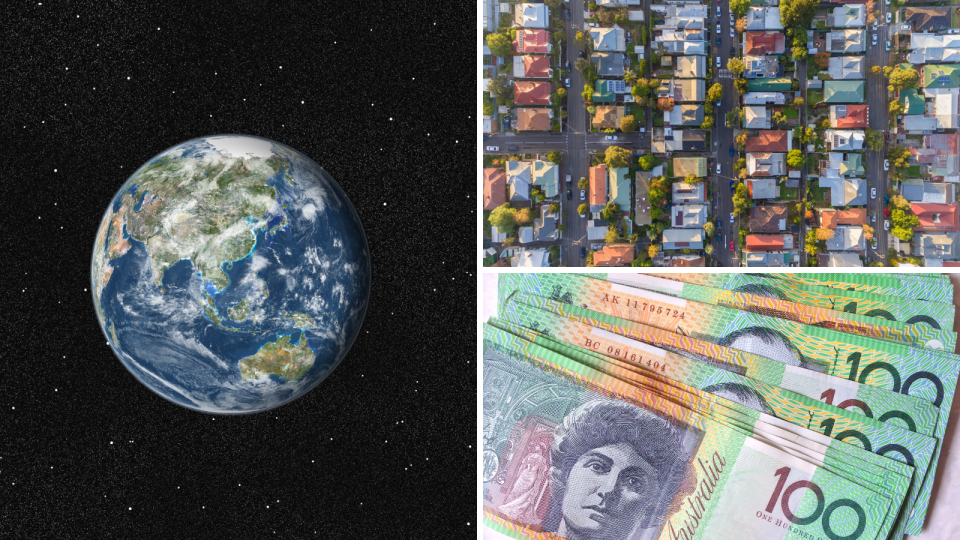3 ways to prepare for a economic downturn

While 25-plus years without a recession might make us think we’re invincible to a severe economic downturn, we’re not.
By definition, we’re getting closer to the next one than the last one.
And while some of us might say “I can’t wait to buy assets at fire sale prices”, the reality is often far worse than the expectation – psychologically and financially.
Here are three tips to help you weather the next downturn.
1. Invest in yourself
Most of us don’t take the time to think about our job security until we’re well into our 50’s or 60’s. But it won’t matter how old you are, many jobs could be on the chopping block if the ‘negative wealth effect’ from property ripples through other parts of the economy.
The only thing better than preparing your personal finances for the ‘tap on the shoulder’ is having a strategy before it comes to that. So don’t just consider your household cash balance (which is important) also think about your employability.
It’s never too late to do a short course or start a side hustle to make money where and when you can.
To me, investing in yourself forms part of any good financial strategy because your earning power starts with you. Ask anyone who’s been made redundant or recently retired, as soon as the fortnightly wages stop hitting the bank account every expense hits you twice as hard.
2. Diversify away from property
Better late than never, I guess. It’s time to take a good hard look at your entire basket of capital, not just your share portfolio or collection of term deposits.
Australian property has been a great investment class for a very long period of time. But I find it very hard to imagine property having another great run over the next few years.
I’ve been saying that since 2013/2014. But I think the fact remains that Aussie household savings ratios are creeping lower and lower at a time when mortgage repayments could keep rising.
My skin tingles when mortgagees tell me that their jobs are tied to Aussie property, their property (or properties) are here in Australia and a big chunk of their Super is invested locally. If you ask me, that’s a lotta egg in one geographic basket!
As an example, getting foreign currency exposure can benefit Australian investors when the AUD falls, and open up the door to thousands of other investment opportunities.
Government bonds, which sound foreign and confusing to most Aussies, are another tried and tested investment class to consider. Thanks to the advent of ASX-listed bond ETFs it’s never been easier to get bond exposure.
3. Consider Overseas Exposure
Once you’ve got at least six months of cash set aside (or more if you’re a contract worker, have a family or are quickly approaching retirement) I think it makes sense to keep your investments earning respectable returns through the market cycle.
In my opinion, shares and property could be expected to fall hard (20 per cent, 40 per cent, 50per cent+) during a recessionary environment.
During the GFC, shares of Commbank went from nearly $60 to $24 – a 60 per cent fall. However, they recovered and are now paying $4+ dividends per year and riding at $70. Imagine if you invested when they were below $30!
So if (and, believe me, it can be a big IF) you’re prepared to ride out market falls and stay the course, that’s when the best money is made.
For overseas diversification and growth, there are a few options for DIY investors
Open an international shares account
Invest with a fund manager (managed fund)
Use an ETF (a passive or active managed fund trading on the ASX)
You might even use a combination. For example, you might use an active bond fund and/or individual shares and/or a US or All World passive shares ETF. That would be in addition to some cash in the bank for emergencies.
Another way to mitigate some risk and keep some growth on the table may be to buy local companies with global exposure.
Owen Raszkiewicz is lead adviser of Rask Invest
Make your money work with Yahoo Finance’s daily newsletter. Sign up here and stay on top of the latest money, news and tech news.
Now read: Labor’s negative gearing plans will lead to spike in Chinese investors
Now read: Warning: Don’t get caught in this investment trap
Now read: Here’s what really fuelled Australia’s property boom

 Yahoo Finance
Yahoo Finance 